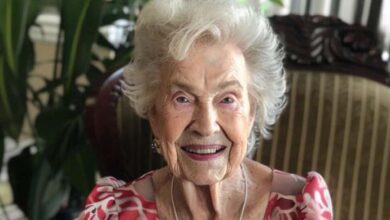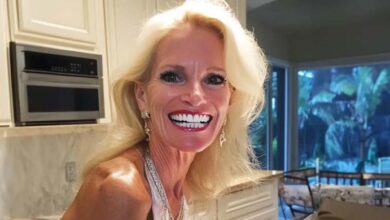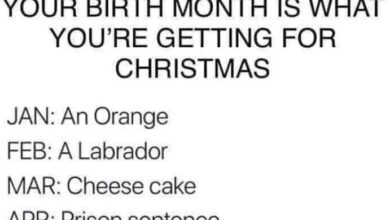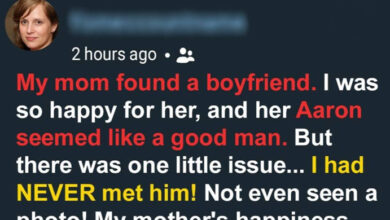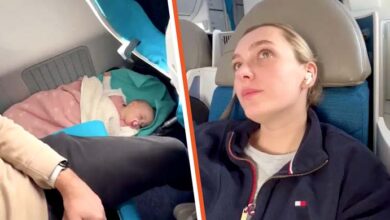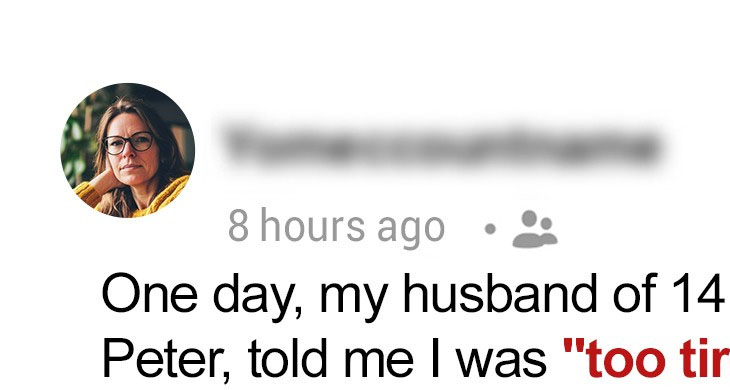
For fourteen years, I poured everything I had into our family.
I was the keeper of schedules, the band-aid applier, the midnight fever whisperer, the unpaid Uber driver. I juggled four kids, a teaching job, bills, meal plans, laundry, and a husband who, somewhere along the way, stopped noticing I existed outside of convenience.
I didn’t see the text coming. It arrived on a Tuesday—a beige, forgettable afternoon—while I was folding towels.
“I can’t do this anymore. I’m sorry. You’re too tired. Too boring. Too much. I need more from life.”
Fourteen years—ended by a text message.
I stood in the middle of the laundry room, staring at the screen as if it might somehow disappear. My hands trembled. Somewhere down the hall, a child was asking for a snack. Life kept moving, even as mine cracked wide open.
By morning, Peter had posted a photo on Instagram. He and Elise—his colleague with the cherry-red lips and zero responsibilities—were clinking champagne glasses on a rooftop bar. The caption read, “Starting fresh.” I counted 322 likes before hurling my phone across the room.
I didn’t get to grieve. I had four kids who still needed lunches packed, rides to school, and a mother who didn’t disintegrate mid-sentence.
I broke the news over breakfast—gently, honestly, through a trembling smile and hands that buttered toast while my insides collapsed. I answered their questions as best I could, and when there were no more words, I kissed the tops of their heads and loaded the dishwasher like it was any other morning.
“Where’s Dad?” Lucy, seven, asked one night.
“He’s living somewhere else right now,” I said, brushing her hair back.
“Because of me?” she whispered. “I’m loud at breakfast and I forget my spelling sometimes…”
My heart cracked clean in two. “Never because of you, baby. Grown-ups make choices. Sometimes terrible ones.”
The tears I didn’t cry in front of them, I saved for the shower.
I returned to full-time teaching. I turned the guest room into a home office. I sold the grand piano Peter insisted we buy but never touched and used the money to fix the leaky windows he never had time to seal.
The first time I laughed again—really laughed—was at book club, over cheap wine and shared stories. One Saturday, while making pancakes, Emma looked up and said, “You’re singing again.”
I hadn’t even realized I’d stopped.
Healing didn’t come in one glorious sunrise. It came in baby steps. In bills paid. In dances attended. In hugs that felt more like anchor points.
Eventually, I stopped checking my phone for messages that wouldn’t come. I stopped flinching when someone mentioned his name. I stopped surviving and started living.
Then, a year later, Peter showed up at my door.
He had a gas station bouquet in one hand and a hopeful smile that looked like a borrowed mask.
“Can we talk?” he asked.
I wanted to slam the door. But something steadier in me said: No, let him speak. Let him see what strength looks like.
So I invited him in—to the kitchen we’d once painted together, to the chair he used to pretend was a throne.
“Elise and I… broke up,” he said. “She said I was emotionally unavailable. Can you believe that?”
I could. I could believe it with every fiber of my being.
“I’ve made mistakes,” he continued. “But I want to come home. I miss you. The kids. Us.”
I stood. “Wait here.”
When I came back, I slid a manila folder onto the table. “Open it.”
He looked confused but obliged. Page after page of documentation: retroactive child support, itemized expenses, legal rights, counseling referrals. I had been ready for this moment.
“You wanted to come back,” I said. “I assumed you meant as a father, not as a returning king expecting a throne.”
He paled. “You’ve changed.”
“No. I finally stopped burning myself out to light your way.”
“This isn’t fair,” he muttered.
“This isn’t punishment. It’s consequence.”
He blinked, unsure of what to say. “So that’s it?”
“As far as we’re concerned? Yes. That’s it.”
I walked him to the door. He hesitated, expecting tears or maybe an embrace.
Instead, I closed the door softly.
The next morning, I tossed the bouquet into the compost—right next to the eggshells, the coffee grounds, and all the other things that had served their purpose and were no longer needed.
Peter got his freedom.
I got my fire back.
And my kids? They got a mother who remembered how to sing.
